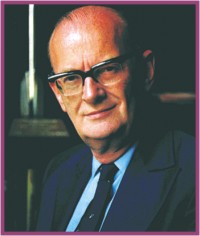Feature
Arthur C. Clarke: Luminaries Pay Tribute
Clara Moskowitz
 AS news of Arthur C. Clarke's death spread through communities of scientists, writers and science fiction fans, many people shared their memories of how the visionary writer, inventor and futurist inspired and influenced them. AS news of Arthur C. Clarke's death spread through communities of scientists, writers and science fiction fans, many people shared their memories of how the visionary writer, inventor and futurist inspired and influenced them. Clarke is famous for his book, "2001: A Space Odyssey" (he also co-wrote the screenplay for the movie), for coming up with the idea for the communications satellite and for predicting space travel long before humans left Earth.
"I think the passing of Arthur C. Clarke is really epical," said Alan Stern, associate administrator of NASA's Science Mission Directorate. "There is no one of his caliber or vision on the scene today ... Clarke's contribution was to motivate people to go after careers because they wanted to help shape a certain kind of future, to be at the beginning of something of millennial importance."
Stern said Clarke's legacy at NASA and in the space exploration community was particularly significant.
"For my generation, the children of Apollo, Clarke's writings were hugely and deeply inspirational," Stern told SPACE.com. "He was not just a technically competent writer of science fiction, science fact and futurism, but he was incredibly optimistic. I have had many emails in the last 18 hours, from friends of mine, from childhood, graduate school, >adulthood. It's amazing to me how many say the same thing: 'I wouldn't be in this line of work if it weren't for Arthur Clarke.' People across the world, especially the backbone of American aerospace exploration and space science, were inspired by Clarke's writings at one stage or another in their youth."
Clarke had a profound impact on technology and invention. His idea for the communications satellite has affected the whole planet.
Many people have wondered how Clarke was able to predict so many elements of the future before they unfolded in reality.
"I think it was partially because his mother was a radio telephone operator," Druyan said. "So here he is as a young person growing up in the early part of the 20th century, at a moment where electronic communication was in its fledgling earliest stages, and he is a guy who has an exceptional imagination. So it was the perfect recipe for a child with Arthur's talents to go in that direction. The modesty of his background is yet another reason why it's so important to educate everybody, because you never know where the next Arthur C. Clarke or Carl Sagan could be."
End of an era
Clarke also profoundly affected his fellow science fiction authors.
"Arthur C. Clarke was one of the giants of science fiction; impossible to ignore, looming over all of us who have come since," said Charles Stross, author of the novels "Saturn's Children" and "Halting State." "He introduced many of us to science fiction for the first time ... He managed, somehow, to combine visions grounded in an understanding of science and engineering with a numinous sense of awe at the scale and beauty of the cosmos in a manner that is all too rare."
With Clarke's death, an important epoch in the world of science fiction is over, Stross said.
Many writers remember the first Clarke book they read, and the profound effects his work had on them.
Although Clarke is no longer with us, his work will live on, Card said.
A writer's writer
Not only did Clarke impact the sweep of human history with his ideas, but he had a very direct effect on the lives of many.
"When I met my wife, just shy of fifty years ago, I gave her one book to read, to see whether we could get along Arthur Clarke's collection of stories, 'Expedition to Earth,'" said Joe Haldeman, author of "The Accidental Time Machine." "She did like it, and we're still going together."
Plus, he was a great smoking companion.
"I had the great pleasure of watching a couple of Apollo launches with Arthur," Halderman said. "For most of those launches, all of us science fiction writers got together at the house of Joe Green, a writer who worked for NASA. Arthur and I were smokers then, and so were banished to the back porch together. He was a wonderful conversationalist, >which I hope made up for the fact that I was tongue-tied, thrust into isolation with an idol of my youth. He was a writer's writer, and a humane and brilliant man. He will be missed, and never replaced."
Creating the future
Clarke inspired many young people to pursue science, and shaped the way many scientists approach their work.
He helped to make science important and understandable to the public.
"One of his main legacies is his really firm belief that science and technology is a defining feature of human evolution," Stone said. "And I of course believe that myself. So he was a very effective writer in capturing the idea of how important science and technology are to human evolution."
| 